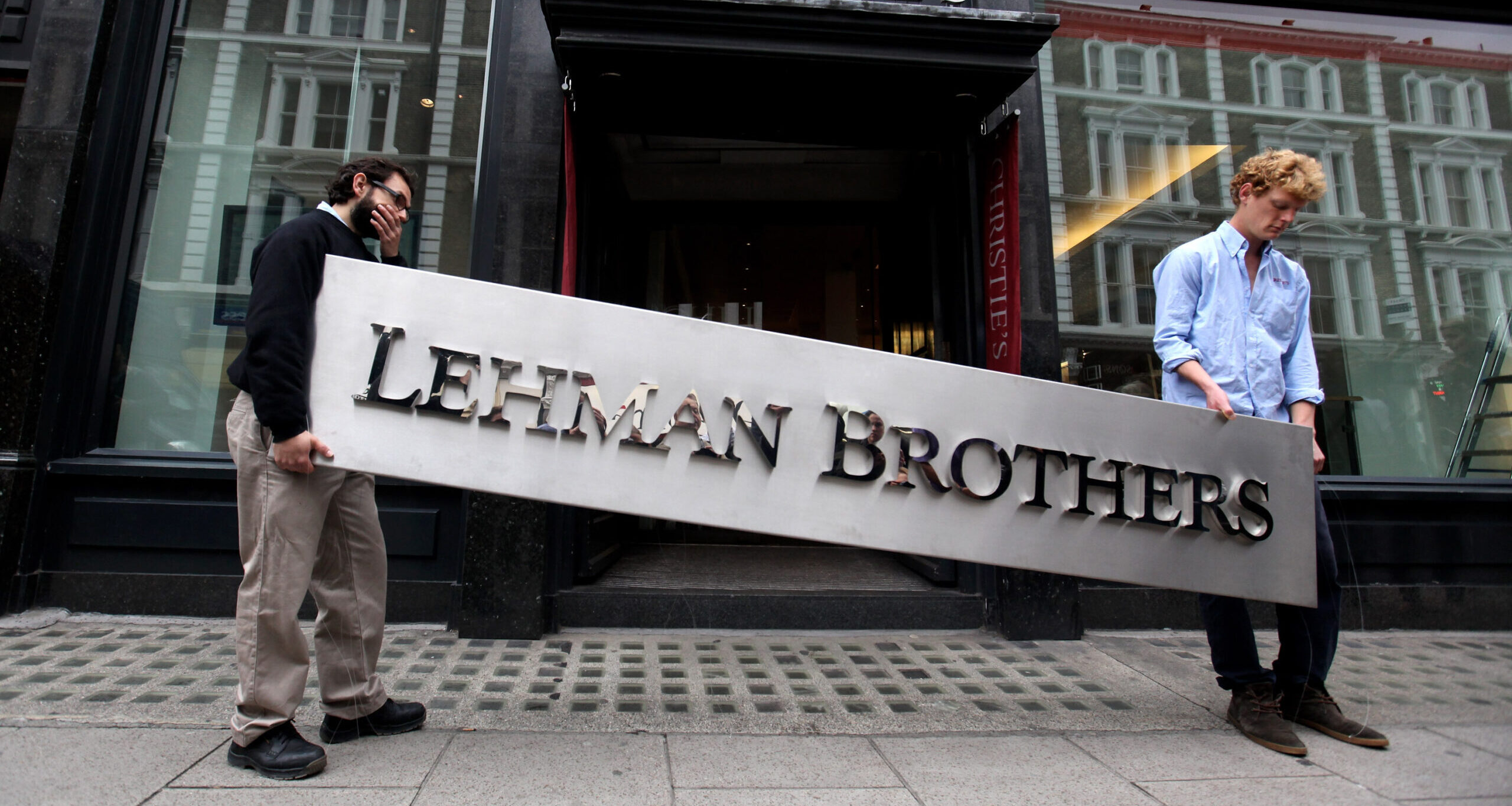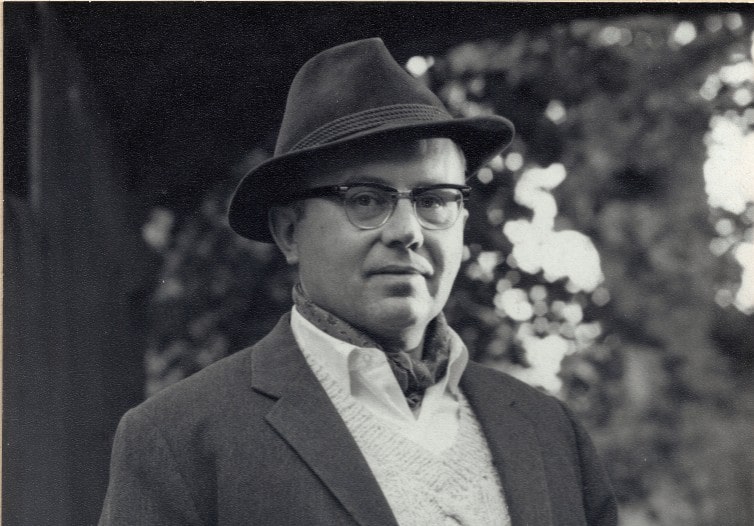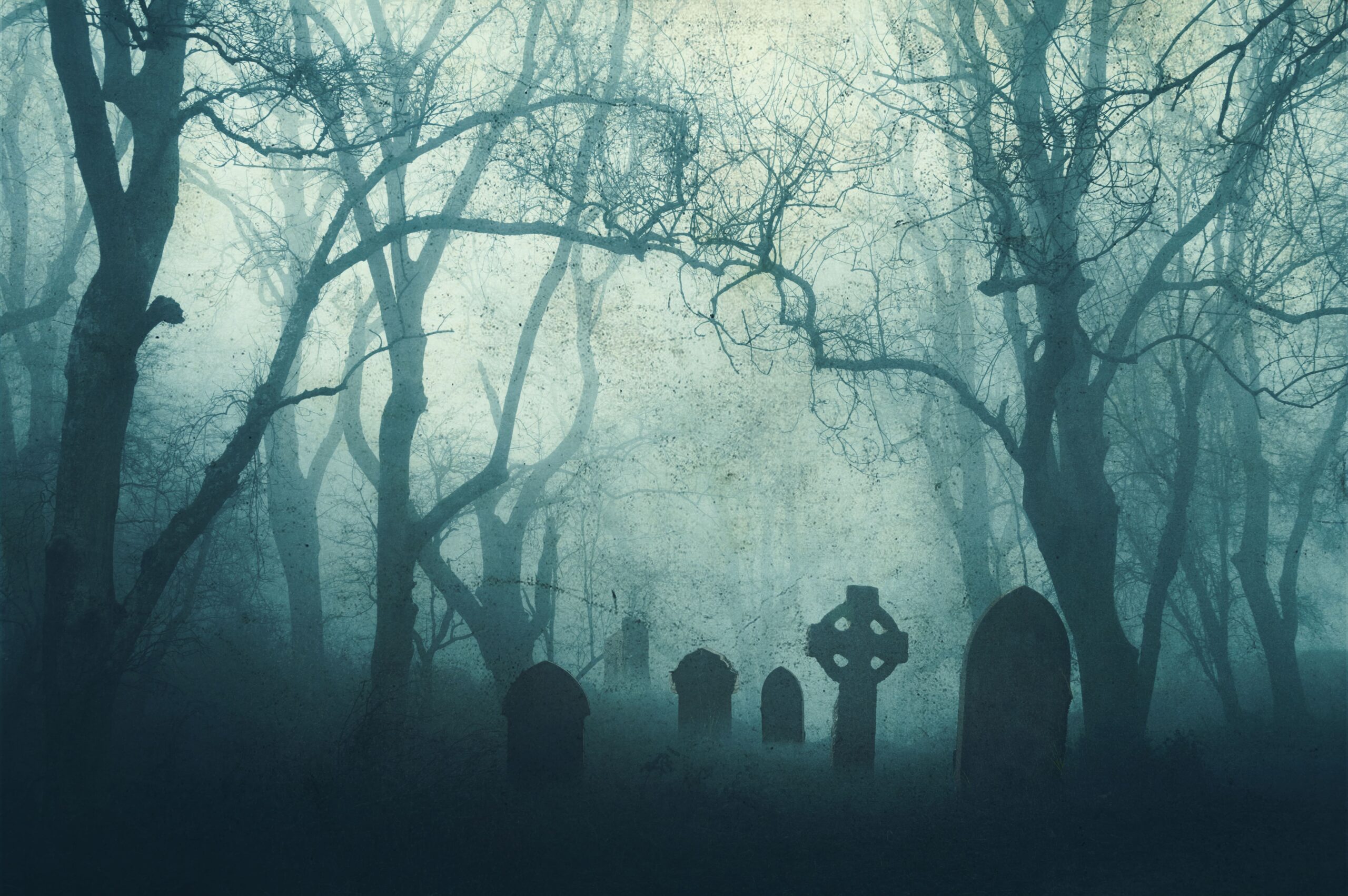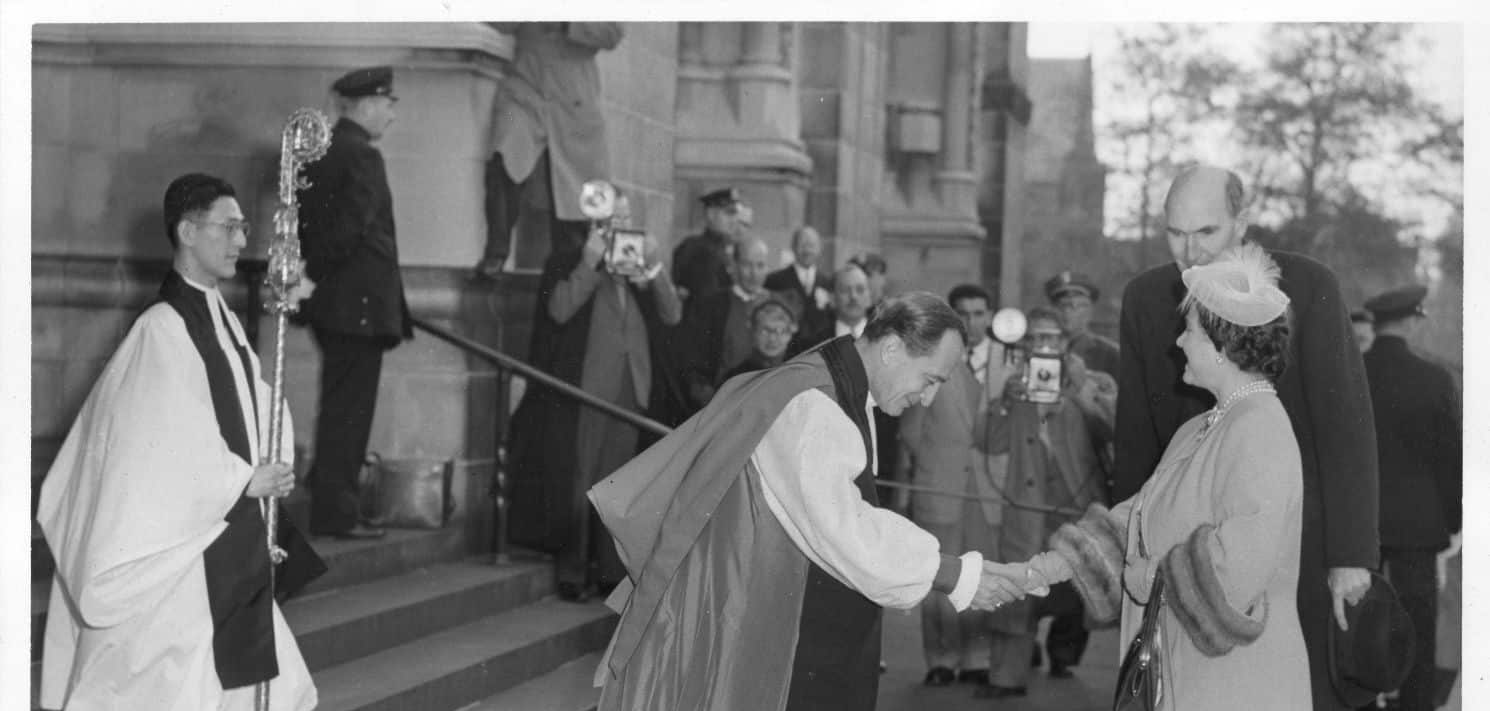The year is 1929. With a city in chaos outside his window, Bobby Lehman is charged with saving the legacy of a corporate empire built from fabrics and suits. The sky has fallen, and the men on top of the world are the first to feel the crash.
The Lehman Trilogy—despite the name, a single play, one recently staged by the Shakespeare Theatre Company in Washington, D.C.—dramatizes the rise and fall of three generations of the Lehmans, who would found the firm Lehman Brothers and become one of the most important families in American finance. The play covers a great deal of U.S. history, focusing on economic shifts from the mid-1800s to the early 2000s, with the Civil War, Reconstruction, and both world wars along the way. Generations of Lehman brothers had their hands in many of the innovations that fueled the growth of the United States: the railroads, the Panama Canal, and the New York Stock Exchange.
With inflation, interest rates, and the job market on everyone’s minds today, the recent production in the nation’s capital has given the play a second act. Though The Lehman Trilogy may be read as an anti-capitalist critique in the long wake of the 2008 financial crisis, in which the firm was both a driving force and a notable fatality, the play is actually a deeper exploration of the role of personal choice, family, and human nature—and the allure of vice and vanity—that can turn the American Dream into a nightmare.
The Lehman Trilogy began as a nine-hour Italian epic, written by Stefano Massini, which premiered in Europe in 2013. Ben Power adapted the English translation by Mirella Cheeseman into a three-hour version that made its way to Broadway from London’s West End in 2020. The show appeared at the Shakespeare Theatre Company’s Harman Hall in February and March of this year, directed by Arin Arbus.
The Lehman Trilogy depicts a nuanced interplay between the invisible hand of the marketplace and individual choice. The show opens with the first transatlantic generation’s eldest brother, Hayum Lehman (played by Edward Gero), stepping off the boat into New York City after emigrating from Rimpar, Bavaria, in Germany. Hayum’s name is quickly changed by an inspector at Ellis Island to Henry. He migrates down to Montgomery, Alabama, where he opens a shop selling fabrics and suits. His brothers Mendel, now Emanuel, Lehman (played by René Thornton, Jr.), and Mayer Lehman (played by Mark Nelson) join him in the following few years.
Amid their humble beginnings, paying off their debts by selling inches of fabric to the poor, they see a business opportunity in the fires that wipe out the plantations in the area. They lend the owners the seeds and tools they need to rebuild in exchange for one-third of the cotton harvest when it comes. In turn, the brothers sell that cotton to manufacturers in the North.
Emanuel moves to New York to secure more relationships with manufacturers while Mayer stays in Alabama to manage relationships with their plantation clients. Henry Lehman dies of yellow fever, and Emanuel and Mayer sit shiva for the full seven days customary in Jewish tradition, allowing their mourning beards to grow and the fabric shop to close.
While the brothers are separated, the Civil War breaks out, and business dwindles as the destruction rages on. After the war, Mayer convinces the governor of Alabama to give him the state funding to invest in rebuilding the state. With investment experience gleaned from Alabama banking and a quick-thinking pivot to trading goods such as coffee, iron, and coal, the brothers acquire enough capital to open their own newly minted Lehman Brothers Bank in New York City.
Emanuel’s son, Philip Lehman (played by the same actor who played Henry), is an all-American, all-New York boy. He takes over the Lehman Brothers after Emanuel and Mayer die. Philip guides the Lehman Brothers Bank to invest in progress, pursuing the promise of growing industries such as transportation.
Philip’s son, Bobby Lehman (played by the same actor who played Mayer) takes over after his father’s death. He doesn’t honor any of the Jewish mourning traditions, instead employing a PR stunt that closes the business for three minutes to honor the death of their long-time president. He dies the last Lehman connected to the Lehman Corporation, and the final president, a non-Lehman, is bought out by the traders for millions of dollars in the 1980s.
The three-and-a-half hour production doesn’t depict the 2008 recession on stage. Instead the production opens with one of the actors shoveling the piles of shredded paper into large rolling carts while a radio announcement reports the corporation’s collapse. Yet the recession looms in the background throughout the show, with the audience mindful of the imminent future of the brothers’ venture.
The play looks intently at the way that the invisible hand of the marketplace uplifts, creates, destroys, and disturbs in turn—but the Lehman brothers’ triumphs and failures are also personal.
The most impressive part of this ambitious production is that all of the characters are played by a cast of three. Throughout the show, the same actors who portray the Lehmans also become, as needed, plantation owners, wives, customers, investors, and traders. The three of them ably play about fifty roles in all. This gives the play a sense of continuity amid change. It also reinforces the play’s theme of the creation that is present within destruction, and the complex enmeshing of individual lives and fates.
But in a symposium hosted by the Shakespeare Theatre Company in conjunction with the production, many panelists favored a narrow reading of the play as an attack on the American Dream—indeed, as a play that exposes the American Dream as a scam and a promise denied to minority groups by white privilege.
According to Drew Lichtenberg, the play’s dramaturg and one of the symposium’s moderators, “this play embodies a left-wing critique of capitalism [as something that] oppresses both the Jews as well as black Americans over history. It makes me think, again, of the words of Marx and Engels in The Communist Manifesto, ‘All that is solid melts into air, All that is holy is profane.’ The institutions which have godlike power over our lives, such as capitalism, are things that take human labor, human lives, and turn them into abstract things, that have the power of life and death over all of us, and that they uplift some of us, but also oppress others of us.”
Lichtenberg is right that the play looks intently at the way that the invisible hand of the marketplace uplifts, creates, destroys, and disturbs in turn—but the Lehman brothers’ triumphs and failures are also personal. When the Lehmans are tied to their community, building trust, and steeped in their tradition, creation generally wins out over destruction. As they betray those relationships, dismantle bonds of trust, and abandon the pursuit of service, that dynamic changes, and their sins do not go unpunished. Far from being a victims-and-villains narrative, there is a nuanced story that celebrates the potential for redemption from one’s actions and the necessity for justice and retribution.
The casting of the play also defies any attempt to victimize or villainize. In playing a score of different characters, each of the three actors provides the audience a sense of unification and familiarity that emphasizes the human experience as a whole, abstracted from any one group, one protagonist, or one antagonist. The story is complex and universal. There are certainly complexities and tradeoffs in the assimilation that the Lehman brothers underwent, new identities in tension with old, from Ellis Island to New York Hebrew school to the offices of their corporate empire. Everybody makes choices; some have far-reaching effects. As the work’s Italian origins may suggest, the Old World’s view of the American Dream is one in which immigrants can get rich and rise to power but risk their souls and their community to do it. There’s some truth in that, but this is not a system that forces itself on human beings unable to exercise their own choices.
As one dissenting voice on the panel, Wellesley English professor William E. Cain, put it: “The American Dream is really about connection and community, about family and relationship, recognition and acknowledgement. And it’s about loneliness. And the distortions and confusions . . . and illusions we feed to Americans that it’s about something about a bank statement or a big house or a fast car.”
The American Dream is as big as the dreams—and nightmares—of those who pursue it. An attempt to reduce The Lehman Trilogy to a mere anti-capitalist manifesto does a disservice to its gloriously and tragically American story, and to those who watch and live it.















